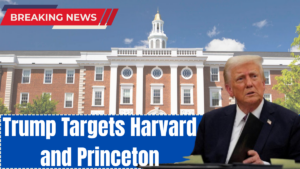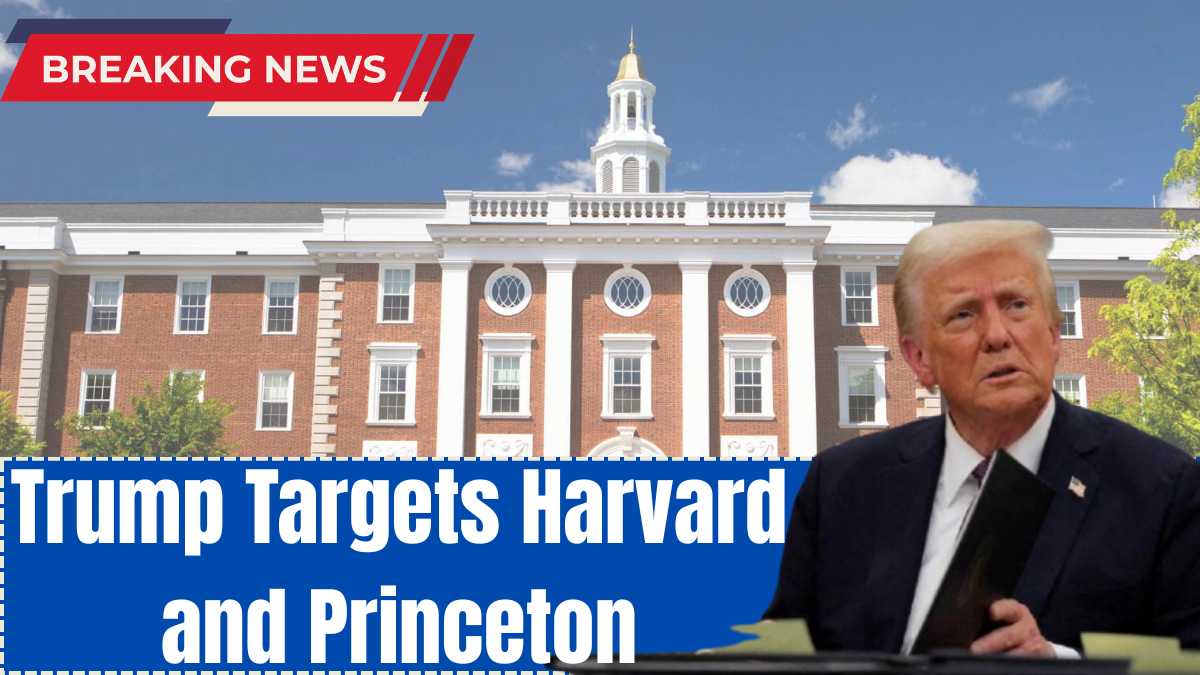The Trump administration has raised concerns over anti-Semitic protests on college campuses, specifically targeting prestigious universities like Harvard, Princeton, and Columbia. The Joint Task Force to Combat Anti-Semitism is reviewing over $256 million in contracts between Harvard and the U.S. government, as well as $8.7 billion in multi-year grants to Harvard and its affiliates. This scrutiny stems from protests that have occurred since October 2023, following the Hamas attacks on Israel. This has led to a wider discussion about potential federal funding cuts to these institutions.

Why Is Trump Targeting Harvard?
The Trump administration has expressed dissatisfaction with Harvard’s handling of anti-Semitic protests on campus. The protests, especially the Harvard Out of Occupied Palestine (HOOP) encampment, were set up in solidarity with Palestinians in Gaza. Despite Harvard’s attempts to address the issue, the government is demanding stronger actions. Harvard President Alan Garber acknowledged the need for improvement and pledged to work with the federal government. If federal funding to the university is cut, it could seriously impact scientific research and other essential projects at Harvard-affiliated institutions.
The Case of Columbia University
After similar protests, Columbia University also faced scrutiny. In February 2025, the Trump administration revoked $400 million of funding from Columbia, citing failure to protect Jewish students from harassment. Following the revocation, there have been significant impacts on both students and faculty, with immigration arrests and visa issues emerging for individuals involved in protests. Columbia’s response included strict new measures, such as increasing security and enacting policies to meet the administration’s demands.
The Larger Impact on Universities
The crackdown has not only affected Harvard and Columbia but has also extended to other elite universities like Princeton. The Department of Education suspended $175 million in funding to the University of Pennsylvania due to its policies regarding transgender athletes. Universities such as Princeton have seen funding suspensions from federal agencies, including NASA and the Department of Energy.
Effect on Foreign Students
Foreign students, especially those from India, are facing additional scrutiny amid the funding cuts. In 2023-24, over 331,000 Indian students were enrolled in U.S. colleges, with many pursuing degrees in STEM fields such as maths, computer science, and engineering. The federal government’s crackdown on anti-Semitic protests has raised concerns about visa security and the availability of research funding for international students.
While foreign students may not be directly targeted by these cuts, the ripple effects of funding freezes and visa scrutiny are likely to create challenges for them. As the U.S. government reviews contracts and grants for these universities, foreign students may face delays or complications in their academic and research opportunities.
Conclusion
The Trump administration’s actions against universities like Harvard, Columbia, and Princeton represent a major shift in U.S. immigration and funding policies. While the primary target is institutions involved in anti-Semitic protests, the broader implications of these policies on foreign students and research funding are significant. Students, particularly those from countries like India, should stay updated on any potential changes to visa policies and university funding that may impact their academic careers in the U.S.
Click here to know more.
Aanchal is a passionate writer with a keen interest in storytelling, content creation, and creative expression. She enjoys exploring diverse topics and crafting engaging narratives that captivate readers.
